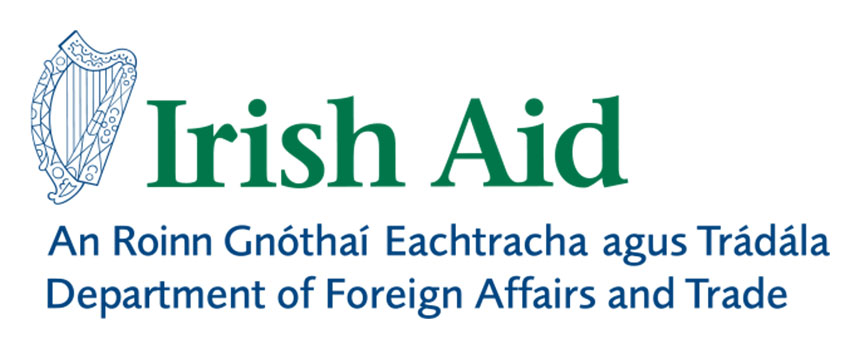Global Debt Slavery
“Must we starve our children to pay our debt?”
– the late Julius Nyerere, former President of Tanzania
Overview
In this session we take a closer look at debt. Ireland is not the first country to become heavily indebted. The session highlights the new trends in indebtedness, particularly the rise of private debt around the world and its implications. It asks why these countries are in debt, and what were the particular circumstances of different cases. We ask if debt is a tool of oppression within unequal power relationships.
Learning Outcome
That participants will gain an understanding of the role of debt in the current financial crisis, and also gain a global and historical perspective on the topic. Participants will also explore the concept of debt justice.
Table of Contents
- Resources
- 1. Video: ODG, 3000 sandwiches
- 2. Report - Life and Debt: Global studies of debt and resistance
- 3. The New Debt Trap – Jubilee Debt Campaign
- 4. Video: Thomas Sankara’s ‘Against Debt’ Speech (1987)
- 5. Blog: A Really Really Special Case Requires a Really Really Special Solution – Michael Taft
- 6. Video: Debt and Morality – When it is OK not to Pay Debt?
- 7. The Debt we Don' Talk about – Richard Vague
- 8. Blog: Are Financial Crises a New Problem? – Alan Cibils
- Discussion Questions
- Learning Journal
- Extra Resources
Resources
1. Video: ODG, 3000 sandwiches
This video employs a simple metaphor to help visualise the mechanics of debt, while also effectively explaining how countries become indebted.
2. Report - Life and Debt: Global studies of debt and resistance
This report demonstrates the realities of debt around the world, employing a global perspective in familiar tales of debt and resistance. Read the introduction and comparison on case studies; pages 1-10. Read here.
3. The New Debt Trap – Jubilee Debt Campaign

Debt crisis are becoming dramatically more frequent. This report from UK-based Jubilee Debt Campaign looks at how the response to the last global financial crisis has laid the ground for the next, which is already starting in some countries. Read the executive summary; pages 3-4.
4. Video: Thomas Sankara’s ‘Against Debt’ Speech (1987)
In 1987, President of Burkina Faso, Thomas Sankara, made a revolutionary speech to African leaders in Addis-Ababa. Months later he was assassinated in a military coup.
5. Blog: A Really Really Special Case Requires a Really Really Special Solution – Michael Taft

In this blog post, economist Michael Taft works out the cost of the financial crisis per capita in Europe, finding that Ireland has “paid 42 percent of the total cost of the European banking crisis”.
6.Video: Debt and Morality – When it is OK not to Pay Debt?
At the opening plenary session of the Life Before Debt Conference at SOAS, London, Archbishop of Canterbury Rowan Williams discusses the morality of debt crises from a faith-based approach.
7. The Debt we Don' Talk about – Richard Vague
How do you know a major financial crisis is coming? Look for a spike in privately held debt, by households and corporations.That’s the argument of Richard Vague, author of The Next Economic Disaster: Why It’s Coming and How to Avoid It. Having worked for more than 30 years in consumer banking, Vague describes how he saw the build-up of private debt in the mortgage and credit card industries first hand—even though it’s an issue that neoclassical economists like Milton Friedman barely acknowledge. To avoid another crisis, Vague says firms and governments need to take debt forgiveness—the biblical “jubilee”—seriously. As he says, after the financial crisis “We helped the banks, we didn’t help the households.
8. Blog: Are Financial Crises a New Problem? – Alan Cibils
The history of capitalism shows that in the absence of strong state regulation of economic activity, financial crises are inevitable and endemic. The greatest financial crisis before the one currently unfolding in Europe began in 1929. Even though the crisis of 1929 started in the U.S, its effects were felt world-wide with a decade-long depression (known as the Great Depression) that left millions of people destitute around the world…
Read more
Discussion Questions
- When it is ok to refuse to repay a sovereign debt?
- Do you think Ireland should have been given a debt write-down?
- How do you feel about what Rowan Williams has to say about ownership and the exploitation of others’ misery, in relation to themes explored in previous sessions?
- In resolving debt crises, do you think different standards should apply depending on whether the country is ‘poor’ or ‘wealthy’? Why?
- What role does debt play in global finance?
Learning Journal
- Is debt a tool of oppression?
- How has the debt crisis had an impact on life in Ireland?
- How, as far as I am aware, has debt crises effected other countries?
Extra Resources
| Jubilee Debt Campaign | Debt campaigners in the UK explain how to avert a new debt crisis. |
| Maisano, Chris | The Soul of Student Debt. Article in Jacobin magazine (2012) |
| Eurodad | 10 Reasons Why the Eurocrisis is Not Over (2013) |
| Naked Capitalism | Interview: David Graeber on debt, education and social control |
| DDCI | Illegitimate debt: A communities facilitators guide |
| DDCI | Report: Towards Justice Centred Solutions (2015) |
| Positive Money | Video: Why is there so much debt? |


